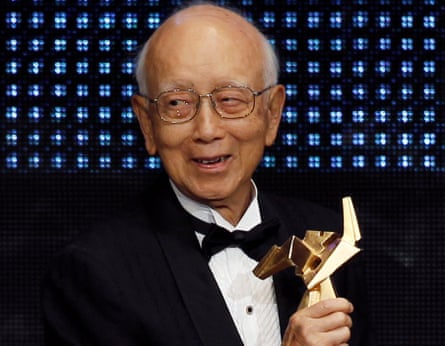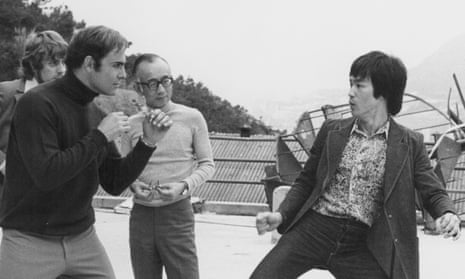Legendary Hong Kong film producer Raymond Chow, who introduced Bruce Lee and Jackie Chan to the world and the Teenage Mutant Ninja Turtles to the big screen, has died at 91.
Chow “helped nurture a pool of Hong Kong talents and brought them to the international stage”, said Edward Yau, Hong Kong’s secretary for commerce and economic development in a statement on Friday.
Chow was a journalist who became a publicist for Shaw Brothers Studios, which churned out hundreds of films and popularised the kung fu genre. Studio founder Run Run Shaw soon moved Chow to the production side of the business after Chow complained that the movies – made on low budgets and short schedules – weren’t good enough.
“I said I did not think I could keep my job because the pictures were so bad,” Chow told Asiaweek magazine in 1983. Frustrated with Shaw Brothers’ assembly-line ethic, he created his own production company, Golden Harvest, in 1970.
He soon outmanoeuvred his former employer to grab the actor who would become synonymous with kung fu movies. Chow signed Bruce Lee in 1971 after seeing him on a Hong Kong TV variety show.
“Facing you on the screen, you feel his presence is very strong, very powerful,” Chow told the Associated Press in 2005.
Golden Harvest signed Lee to a three-picture deal, with each breaking all Hong Kong box office records.
Those movies were followed by Enter the Dragon, the first Chinese martial arts film to be produced by a major Hollywood studio, Warner Bros. It cost $500,000 and earned $40m at the box office. Lee died days before the film’s release in 1973.
Lee’s death left a void for kung fu heroes in Hong Kong’s film industry that young performers were eager to fill. Chow signed one of them, a former stuntman named Jackie Chan, in 1979.
Chan’s first taste of success in Hong Kong had come the year before with the film Drunken Master. After signing with Chow, he made a number of increasingly popular Chinese-language action-comedy movies that made him a superstar in Asia.
Chow invested plenty of time and effort introducing Chan to western audiences. It was 1995’s Rumble in the Bronx that catapulted Chan to worldwide fame, taking $32.4m and becoming the most successful Hong Kong film released in the US.
Chan acknowledged the debt he owed to Chow’s help. “Mr Chow gave me a chance to follow my dreams,” he told Variety in 2000. “I think today that without Golden Harvest, there is no Jackie Chan.”

Golden Harvest also helped bring to the silver screen another set of unlikely martial arts characters, the Teenage Mutant Ninja Turtles, which began as a comic book and then an animated kids’ TV show with a cult following. Intrigued by the name, Chow agreed to produce a live-action movie based on the four crime-fighting, human-sized turtles after Hollywood rejected the idea.
Chow said that he made his choice based on a “gut feeling.” “It’s very weird, very unique and very interesting ... You have to be unique these days to be a big success.”
Chow was born in Hong Kong to a nationalistic father sceptical of western influences. As a journalist, Chow worked at English-language news outlets in Hong Kong, including United Press, which later became United Press International; the New York Times; and Voice of America.
Golden Harvest made its last film in 2003. Chow sold his controlling stake four years later to a Chinese businessman, who changed the name to Orange Sky Golden Harvest.
